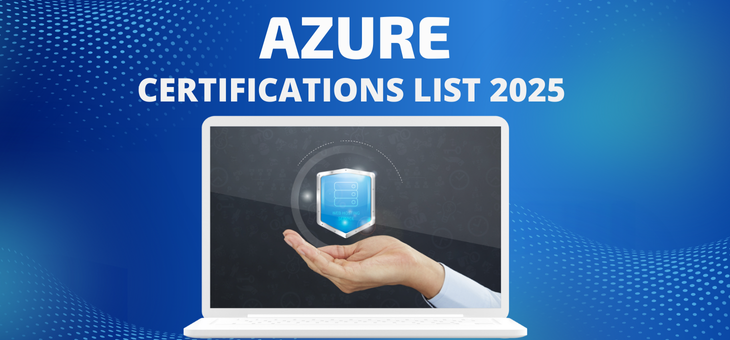What Is Microsoft Azure? Features, Benefits & Career Opportunities
With the rising cloud-driven IT era, companies and professionals are fast adopting platforms that enable scalability, flexibility, and innovation. At the forefront of this revolution is Microsoft Azure. But what is Azure, and why is it an essential skill for future cloud professionals and network engineers?
Here, we discuss what Microsoft Azure is, its most important features, advantages, and how it offers career opportunities. We also share how learning cloud platforms such as Azure and AWS, along with networking and automation skills such as Python, can mold a robust career path—especially with UniNets' state-of-the-art IT training programs.
What Is Microsoft Azure?
Microsoft Azure is a cloud platform and computing service created by Microsoft. It offers a wide variety of cloud services, from compute to analytics, storage, networking, and application development, for various industries. They can be employed for the creation, deployment, and management of applications in Microsoft-managed data centers.
So, if one is asked, "Azure, what is it?" or "what is Microsoft Azure?", the easiest answer is: it's a cloud, agile, and scalable platform that enables developers, network engineers, and IT specialists to create and manage infrastructure and apps anywhere in the world.
Microsoft Azure Features That Make It Powerful
Knowledge of Microsoft Azure features is a must for any person considering venturing into the realm of cloud computing. Here are some of the most prominent Azure features:
Scalability: Scale services up or down instantly based on your requirements
Global Reach: Azure is available in more than 60 regions globally
Integrated Environment: Integrated with Microsoft products such as Office 365, Active Directory, and SQL Server
Security: Enterprise-level threat detection, identity protection, and adherence to major standards
Hybrid Capabilities: Hybrid cloud support integrating on-premises and cloud infrastructure
AI and Machine Learning: Integrated tools for AI, ML, and data analytics
Virtual Networking: High-end network addressing and secure connections for international deployments
Azure or AWS: Selecting a Career Path
IT experts wonder whether to opt for Azure or AWS. The choice is based on your company requirements, interests, and position. It's great to know both, however. At UniNets, we train students on both paths via the AWS certification route and Azure capabilities, making them stand out in the current market.
AWS Certification Path and Its Connection to Azure Skills
If you’re planning a cloud career, you’ll likely explore the AWS certification path. There are several AWS certification levels, including:
AWS Certified Cloud Practitioner
AWS Certified Solutions Architect – Associate
AWS Certified SysOps Administrator
AWS Certified DevOps Engineer – Professional
Every step unlocks new opportunities in your career path with AWS. That said, Microsoft Azure knowledge can augment your path to AWS certifications and provide you with job market flexibility. Top enterprises around the world recognize both the AWS cloud certification pathway and Azure.
Career Opportunities with Azure Knowledge
With Azure knowledge, careers such as:
Cloud Administrator
Azure Solutions Architect
DevOps Engineer
Cloud Security Engineer
Cloud Network Engineer
Skilled professionals with knowledge of Microsoft Azure features and practical experience in automation and networking are in great demand. With Python programming knowledge and AWS skills, your career prospects increase manifold.
Python for Network Engineers in a Cloud Environment
Even though Azure has great cloud tools, automation is critical in efficient infrastructure management. That is where Python fits the bill. For all those interested in a technical career, taking the best Python course for network engineers can greatly help them automate Azure and AWS operations.
In our Python course for network engineers at UniNets, you learn how to:
Utilize Python to manage and configure Azure services
Automate VM deployments, storage provisioning, and network setups
Work with APIs and SDKs for Azure and AWS
Create network automation scripts using Netmiko and Paramiko
Whether you’re just starting with a Python for network engineers course or advancing your skills through a comprehensive Python networking course, you’ll be equipped to build, scale, and secure cloud environments using code.
Networking Basics Still Matter: IP Addressing and Subnetting
Although cloud and automation skills are valuable, solid fundamentals are essential. That's why we also focus on fundamental concepts such as IP addressing and subnetting in our training.
In UniNets, students will become experts in:
IP addressing architecture in cloud and hybrid networks
Network routing logic and addressing
Subnetting basics and IP addressing for virtual networks
Python automation of IP addressing subnetting
Hands-on labs for IP address and subnetting setup
Address subnetting and troubleshooting real-world projects
Advanced IP subnetting and addressing methods for on-prem and cloud environments
These principles are essential when operating Azure virtual networks or AWS VPCs.
Why learn with UniNets?
At UniNets, we outshine textbooks. Our training fits into the most current industry trends and roles.
What you receive:
Expert instruction on Azure, AWS, and Python
Comprehensive coverage of Microsoft Azure functions and deployment
Hands-on labs and projects
Complete roadmap of AWS certification paths
The top Python course for network engineers, in sync with real-world applications
IP addressing and subnetting training, giving you technical confidence
Whether you're working on the AWS career path, becoming an expert in Microsoft Azure, or automating with Python, UniNets sets you up for success in the cloud era.
Final Thoughts
So what is Azure? It's a cloud platform—it's a career changer. With capabilities to enable worldwide operations, hybrid scenarios, and automation, Microsoft Azure is a must-know for today's IT pros. With Python proficiency and AWS certifications in your belt, your roadmap to a successful tech career is set.






Comments